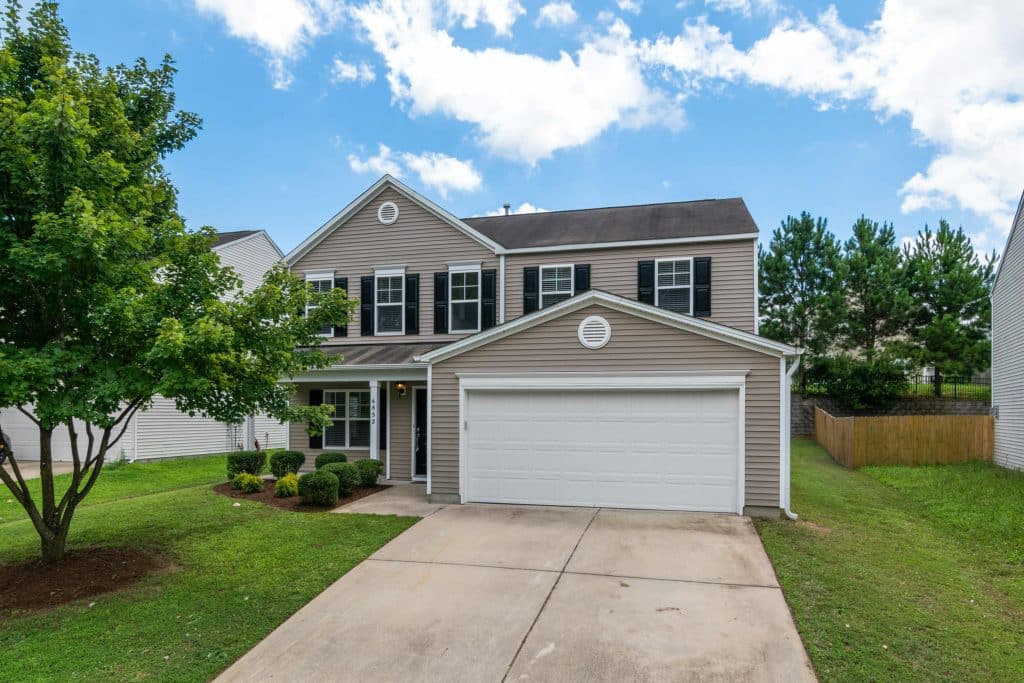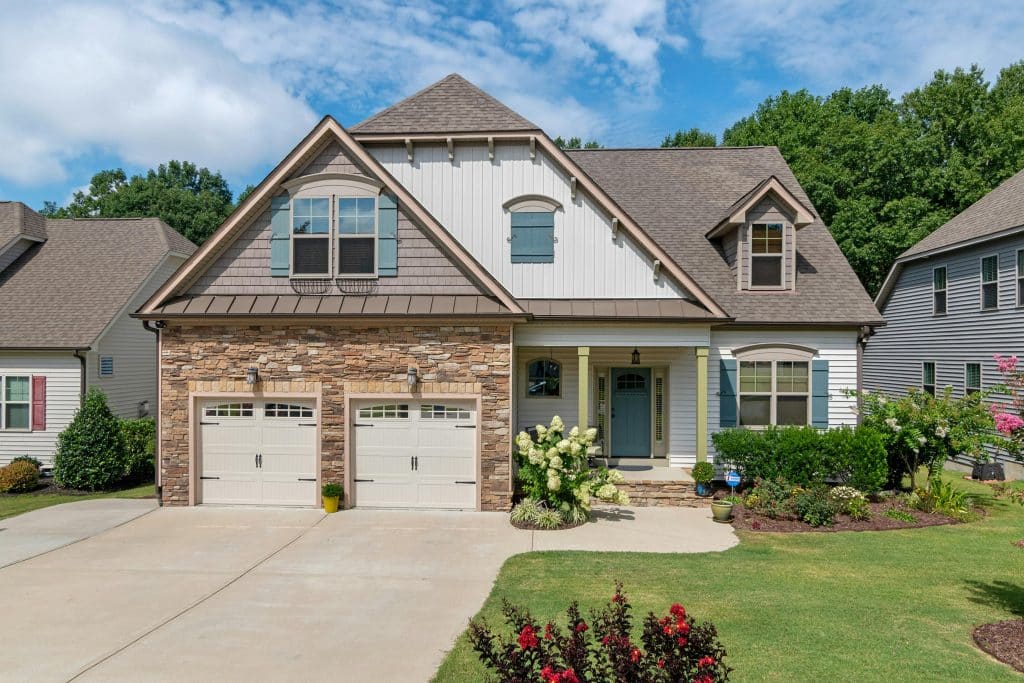Pressure washing damage is more common than most homeowners realize. What seems like a simple outdoor cleaning task can quickly become a costly mistake if done incorrectly. The force behind these machines is enough to crack siding, splinter wood, or dislodge roof shingles. That’s why understanding how pressure washing works and when to avoid it is so important.
While pressure washing is a fast, efficient way to clean exterior surfaces, it’s not a one-size-fits-all solution. Different materials react differently to pressure, and using the wrong technique can do more harm than good. Inexperienced users often apply too much force or hold the nozzle too close, leading to irreversible damage. The goal should always be clean results without compromising your home’s integrity.
From cracked siding to etched wood and loose shingles, the risks are real, but they’re also avoidable. With the right equipment, technique, and knowledge of your home’s materials, you can clean effectively without causing harm. Better yet, enlisting professionals ensures the job is done safely, especially on vulnerable surfaces.
Let’s explore how pressure washing damage occurs, which areas of your home are most susceptible, and what steps you can take to protect your property. Whether you’re tackling a DIY project or considering expert help, knowing the risks is your first line of defense.
Guide to Safer Pressure Washing
- Understanding the Risks of High-Pressure Cleaning
- Surfaces Most Vulnerable to Pressure Washing Damage
- Can Pressure Washing Damage Brick, Siding, or Wood?
- How Improper Washing Techniques Cause Long-Term Harm
- Why It Pays to Leave It to the Pros
- Final Takeaways for Safe Exterior Cleaning
- Quick Tips to Prevent Pressure Washing Damage
Understanding the Risks of High-Pressure Cleaning
Pressure washers work by forcing water out at high speeds to remove dirt, mildew, and grime. While this method can be effective, the power behind it can also be harmful, especially if used incorrectly. The risk of pressure washing damage increases when inexperienced users apply excessive force or use the wrong nozzles.
High-pressure streams can gouge softer materials, strip paint, or even force water beneath surfaces, leading to structural issues down the line. Homeowners often underestimate just how powerful these machines are. Even a pressure washer rated under 2,000 PSI can harm surfaces when handled improperly.
This is especially important to keep in mind if you’re cleaning older homes or surfaces that have already endured wear from Florida’s humidity and salt air.

Surfaces Most Vulnerable to Pressure Washing Damage
Not all exterior materials are built to handle high-pressure water. Here’s a breakdown of surfaces most at risk and how damage can occur:
- Wood Decking and Fencing
- Easily splintered or etched when pressure is too high
- Pressure can open wood grain, weakening boards
- Removes protective stains and sealants prematurely
- Easily splintered or etched when pressure is too high
- Vinyl Siding
- Can crack or warp under high pressure
- Water can be forced behind panels, leading to hidden moisture issues
- May result in streaks or patchy cleaning if done unevenly
- Can crack or warp under high pressure
- Stucco and Painted Surfaces
- Stucco can crumble or flake with too much force
- Paint may peel or chip, especially on older or unsealed surfaces
- Stucco can crumble or flake with too much force
- Asphalt Roof Shingles
- High-pressure spray can loosen the protective granules
- May cause shingles to lift or tear away completely
- Soft washing is the recommended alternative
- High-pressure spray can loosen the protective granules
- Windows and Screens
- Glass can crack or shatter if hit directly with pressure
- Screens may tear or be blown out of their frames
- Glass can crack or shatter if hit directly with pressure
Can Pressure Washing Damage Brick, Siding, or Wood?
Absolutely. The answer to the question “can pressure washing damage brick, siding, or wood?” is yes, especially when the wrong pressure settings or techniques are used. Many homeowners assume these materials are durable enough to withstand any kind of cleaning, but they each have vulnerabilities that high-pressure water can exploit.
Brick is strong in appearance but often fragile at the joints. Mortar can be worn away by aggressive water streams, compromising the structure and allowing moisture to seep in. Once the mortar is weakened, repairs become more involved and expensive. This is especially true in coastal climates, where excess moisture accelerates decay.
Siding, whether vinyl or fiber cement, can crack under pressure or allow water to slip behind panels. Once moisture breaches the outer layer of your home, it can remain trapped, potentially damaging insulation or the underlying wood frame. These problems typically remain hidden until more serious symptoms appear.
Wood is among the most pressure-sensitive materials on a home’s exterior. Too much force can gouge or splinter boards, and even if no physical damage is visible, pressure can force water deep into the grain. This saturation often leads to warping, discoloration, or deterioration over time if not dried properly.
The concerning part is that pressure washing damage isn’t always immediate. In many cases, signs of harm such as softening materials, peeling paint, or structural weakening emerge weeks or even months later. That’s why proper technique and material-specific care are essential from the start.

How Improper Washing Techniques Cause Long-Term Harm
Using high pressure isn’t the only mistake homeowners make. Poor washing techniques can also lead to damage. Here are some common missteps:
- Incorrect Angle: Spraying at the wrong angle can force water behind siding or under roof edges.
- Using Hot Water on Sensitive Surfaces: Some pressure washers heat water to boost cleaning power, but this can warp plastics or damage seals.
- Holding the Nozzle Too Close: The closer the tip is to a surface, the more concentrated the force. This can strip finishes or physically damage materials.
- Ignoring Surrounding Areas: Landscaping, electrical outlets, and light fixtures can all suffer if not properly protected during washing.
These mistakes often lead to more than cosmetic damage. They can compromise the integrity of your exterior and lead to expensive repairs.
Why It Pays to Leave It to the Pros
Given the risks, it’s no surprise more homeowners are turning to professionals for exterior cleaning. Certified pressure washing specialists don’t just clean, they know how to match the method to the material.
Professional services like house washing in Vero Beach use soft washing for delicate areas and adjust PSI levels based on surface type. Technicians are also trained to protect electrical components, seal up vulnerable areas, and avoid damaging landscaping.
Even better, local providers understand the impact of Florida’s coastal climate on home exteriors. They’re familiar with the wear caused by salt, sand, and sun, and use methods designed to extend the life of your siding, deck, or walkway.
For instance, if you’re scheduling pressure washing in Sebastian, you’ll benefit from technicians who understand how wind-blown salt or algae buildup affect local surfaces and how to clean them safely.
Quick Tips to Prevent Pressure Washing Damage
Avoiding surface damage starts with smart preparation and technique. Here are a few essential tips to keep in mind:
- Check the surface type before selecting pressure settings or nozzles
- Test a small area first to see how the material responds
- Use wide-angle nozzles for gentler, more controlled spray patterns
- Avoid direct pressure on seams, edges, or joints
- Hire professionals for multi-surface cleanings or hard-to-reach areas
These simple steps can go a long way in protecting your home’s exterior.
Final Takeaways for Safe Exterior Cleaning
Pressure washing damage is a preventable problem. The key is knowing when and how to clean safely. While a pressure washer can refresh your property’s look, it can also cause serious harm if misused.
Understanding your home’s materials and choosing the right washing technique can mean the difference between a clean home and costly repairs. When in doubt, trust the experience and local knowledge of professional exterior cleaners to get the job done right.
Whether you’re in Vero Beach, Sebastian, or surrounding areas, a carefully planned cleaning strategy can restore your home’s curb appeal without the risk. And if you’re still asking whether the risks are worth the gamble, consider this your sign to leave it to the experts.

